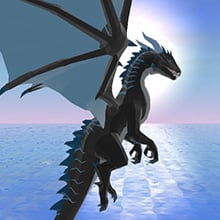
Dragon Games
Discover 9 amazing dragon games. Play for free and have fun!
About Dragon Games
What are Dragon Games?
Dragon games typically refer to video games or tabletop games that feature dragons as a central element. These games often involve players interacting with dragons in various roles. You can control them as characters, battle against them as enemies, or even befriend them as allies. Dragons, known for their mythical and majestic qualities, add a fantastical element to the gameplay experience.
5 Types of Dragon Games
Dragon games encompass a variety of genres and gameplay styles, each with its own set of rules and mechanics centered around these mythical creatures. Here's an overview of the types typically found in dragon games:
Role-Playing Games (RPGs)
In RPG dragon games, players assume the roles of characters within fantastical worlds where dragons exist. The rules often involve navigating quests and storylines that revolve around dragons. Players may encounter dragons as adversaries to defeat, allies to befriend, or powerful entities to negotiate with. Character progression is key, with players leveling up their abilities and acquiring gear to prepare for encounters with dragons of increasing difficulty. Role-playing elements such as decision-making and dialogue choices may influence interactions with dragons and affect the game's storyline.
Strategy Games
In strategy-based dragon games, players engage in tactical gameplay where dragons serve as central units or characters with distinct abilities. The rules emphasize strategic deployment of dragons in battles against AI opponents or other players. Players must manage resources, build armies that include dragons, and plan their movements and attacks strategically to achieve objectives such as capturing territory or protecting valuable assets. Some strategy games feature dragon breeding and customization, allowing players to breed dragons with specific traits and abilities tailored to their strategic goals.
Action-Adventure Games
Action-adventure dragon games focus on fast-paced combat and exploration within immersive environments. The rules typically involve players controlling protagonists who confront dragons as formidable adversaries. Combat mechanics emphasize skillful evasion of dragon attacks, precise timing of offensive maneuvers, and leveraging environmental elements to gain advantages in battle. Exploration rules encourage players to uncover hidden treasures, solve puzzles, and interact with dragon-related lore scattered throughout the game world. Progression often depends on overcoming challenges posed by dragons and other mythical creatures.
Simulation Games
Dragon simulation games provide players with the opportunity to experience the world from the perspective of a dragon. The rules may include managing the dragon's survival needs such as hunting for food, finding shelter, and navigating social dynamics within dragon communities. Players must contend with environmental hazards and interact with other creatures, both friendly and hostile. Evolution and growth mechanics allow players to enhance their dragon's abilities over time, adapting to changing conditions and expanding their territory within the game world.
Board and Card Games
Dragon-themed board and card games translate the allure of dragons into tabletop gameplay experiences. The rules involve players competing against each other through strategic placement of pieces, card management, and tactical decision-making. Board games may feature dragons as central characters or antagonistic forces that players must overcome through collaborative or competitive gameplay. Card games often incorporate dragon-themed decks with unique abilities, requiring players to strategize their card plays to outwit opponents and achieve victory.









